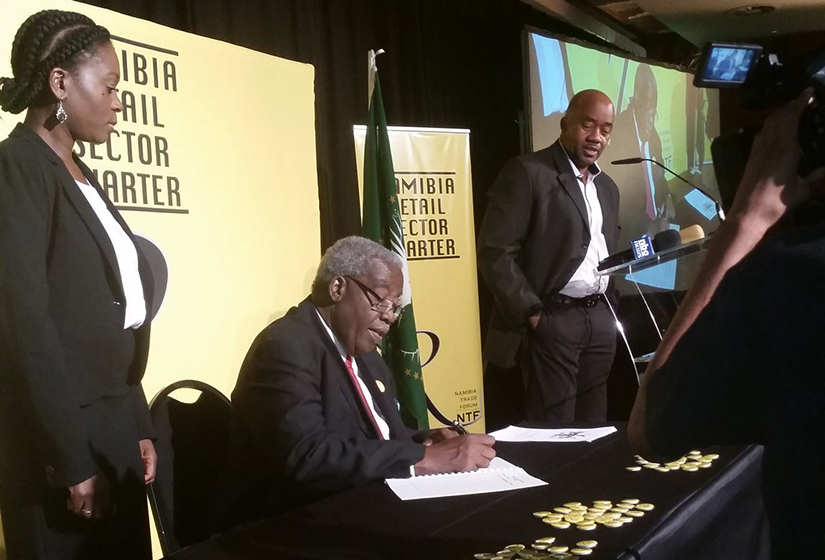
SA retailers supplying products to Namibia have to abide by that country’s retail charter, which aims to control access to the local market to allow for the development of local suppliers.
The Spar Group is among those finding it challenging to operate in Namibia because local supplies are not always readily available. The retail charter was introduced by the Namibian government in 2016 to promote increased procurement of locally grown and manufactured goods. It has become the Achilles heel for SA retailers, which would largely have home products in their stores.
According to the Namibian Trade Forum, one of the main objectives of the charter is to increase the retail shelf space devoted to local products. The charter aims to raise local procurement from 6% of purchases of all retailers, ultimately ensuring that 20% of products are sourced locally. “Should there be a short supply of product, this often results in stores not having sufficient stock for at least two weeks, if not longer,” said Mark Godfrey, group financial director at Spar.
Independent retailers connected with Spar are able to source up to 70% of their product requirements from local suppliers or manufacturers in Namibia. Spar’s sourcing is done by the group’s Namibian buying office in Windhoek. “Suppliers see them on a regular basis and discuss retail product requirements for the stores in Namibia,” Godfrey said.
“Trading arrangements are negotiated on behalf of our retailers and, once in place, retailers are encouraged to support them by placing orders directly on these suppliers for direct delivery.” “Spar manages the financial administration on behalf of the retailers, thereby also giving the suppliers further financial security of payment.”
Pick n Pay, which has 38 stores in Namibia, has franchise partners that actively seek out Namibian products. “Our franchise MD in Namibia is the chairman of the Retail Charter Council and we work constructively with government and communities wherever we operate,” said David North, group executive for strategy and corporate affairs. North said that in Namibia, Pick n Pay buys as much local product as it can obtain, particularly meat, fruit and vegetables.
A spokesperson for Shoprite, which has the largest store network of 152 stores in Namibia, said the group “is supportive of general transformation and opportunities for investment in local economies that aim to uplift the geographical areas and countries that we trade in and the people that we do business with”.
Godfrey said the Namibian government has been involved in the matter “and we appreciate this as well as our retailers’ commitment to support local suppliers where possible”.

